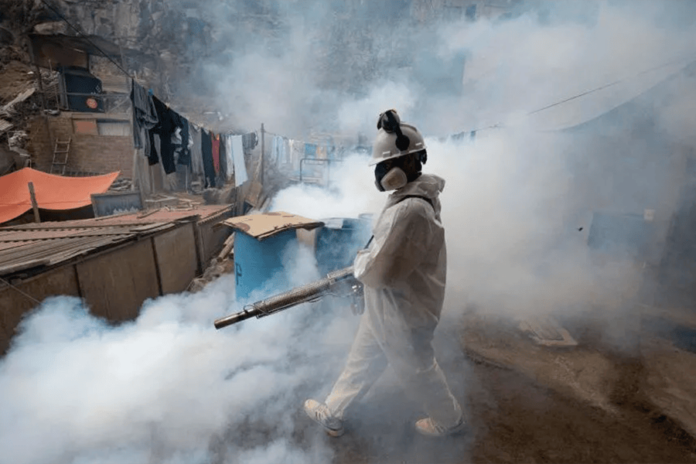The number of cases of dengue fever in Central and South America has nearly tripled to a record high this year, the Pan American Health Organisation (Paho) said on Tuesday.
More than 12.6m cases and 7,700 deaths were recorded in what Paho says is the biggest outbreak in the region since records began in 1980.
Brazil, Argentina, Colombia in South America and Mexico in North America were hit especially hard by the virus, accounting for the majority of cases and deaths.
Dengue is a mosquito-borne virus that can cause serious illness or death in some cases.
Symptoms include a fever, severe headache, pain behind the eyes, muscle and joint pain, and a blotchy rash.
Those with a more severe type of dengue might experience severe stomach pain, fatigue, vomiting, and blood in vomit or stool.
Vaccines have been introduced in some countries in the region, while others, such as Honduras, plan to start distribution in 2025.
In a statement, Paho urged for stronger mitigation efforts and collaboration across the Americas.
Its director, Dr Jarbas Barbosa, said the high number of cases was linked to a hotter, wetter climate and factors such as accumulated water around the home and poor waste management, which create breeding grounds for mosquitoes.
He also said the virus was posing a “higher-than-normal” risk to children.
In Guatemala, 70% of dengue-related deaths were children, while in Mexico, Costa Rica and Paraguay, under-15s made up more than a third of severe cases, Paho data showed.
Children and people with pre-existing health conditions are more likely to catch the disease and develop more serious symptoms.
Around half the world’s population live in areas with a risk of contracting the disease, according to the US Centers for Disease Control and Prevention.
It is spread through the bite of an infected mosquito, most commonly the Aedes aegypti.
By Sofia Ferreira Santos BBC News

